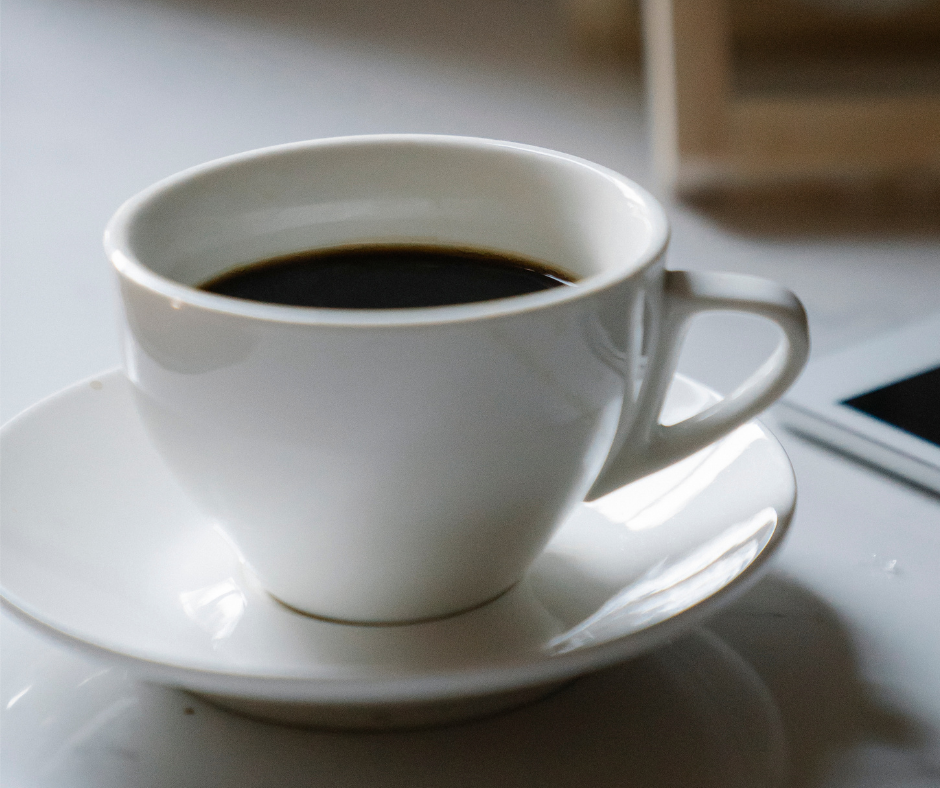Introduction
What Is Intermittent Fasting And Its Benefits
Intermittent fasting is a popular eating pattern involving cycling between fasting and eating. It has gained traction in recent years due to its potential health benefits. When done correctly, intermittent fasting can promote weight loss, improve insulin sensitivity, and reduce inflammation. But Does Coffee Break a Fast?
Fasting typically lasts 16 to 24 hours, with no calories consumed. You can still drink water, herbal tea, or black coffee without any additives during this period.
The Role Of Coffee In Fasting
Coffee has become a beloved companion for many during their intermittent fasting journey. When consumed strategically, coffee can enhance the advantages of fasting while providing a delightful caffeine boost. However, it’s essential to understand the impact coffee can have on your fasting progress.
Does Coffee Break a Fast?
Studies have shown that black coffee does not break intermittent fasting as long as no additives like sugar, cream, or milk exist. This means that if you prefer your coffee black, you can continue to enjoy it during your fasting window without disrupting the benefits of fasting.
However, it’s important to note that other types of coffee, such as flavored or sweetened varieties, may contain calories and additives that can potentially break your fast. These types of coffee can trigger an insulin response and disrupt the fasting state.
Health Benefits Of Fasting And The Best Coffee For Intermittent Fasting
While black coffee is generally considered safe during intermittent fasting, some variations can further maximize the health benefits of fasting. Here are some options to consider:
- Bulletproof coffee: This coffee adds grass-fed butter and MCT oil to black coffee. The high-fat content in bulletproof coffee can help sustain energy levels during fasting.
- Cold brew coffee: Cold brew is made by steeping coffee grounds in cold water for an extended period. It has a smoother and less acidic taste compared to regular coffee. Cold brew can be enjoyed black or with unsweetened almond milk.
- Herbal coffee substitutes: If you prefer to avoid caffeine, herbal coffee substitutes made from roasted dandelion root or chicory can provide a similar coffee-like experience without the caffeine jolt.
In conclusion, black coffee without additives is generally safe to consume during intermittent fasting. Other types of coffee with additives or calorie content may compromise the fasting benefits. It’s always best to consult a healthcare professional or registered dietitian to determine the best approach for your specific fasting goals and preferences.
Can You Drink Coffee While Fasting?
Debunking The Misconception About Coffee Breaking A Fast
There is a common misconception that drinking coffee breaks a fast. However, this is not entirely true. Consuming black coffee, without additives such as sugar, cream, or milk, is generally safe and unlikely to disrupt the fasting state. This is because black coffee contains very few calories and does not significantly impact insulin levels.
How Coffee Can Enhance The Benefits Of Intermittent Fasting
When consumed strategically, coffee can enhance the benefits of intermittent fasting. Here are some ways in which coffee can be beneficial during fasting:
- Increased Fat Burning: Coffee is known to boost metabolism and increase fat burning. When combined with intermittent fasting, this can further enhance the process of autophagy, the body’s natural recycling process that eliminates damaged cells and improves cellular health.
- Appetite Suppression: Coffee is a natural appetite suppressant that can help control hunger pangs during fasting. This can make it easier to stick to the fasting protocol and prevent overeating during the eating window.
- Improved Mental Focus: Coffee contains caffeine, which can improve alertness, focus, and cognitive function. This can be especially beneficial during periods of fasting when some people may experience temporary dips in energy levels.
- Reduced Inflammation: Intermittent fasting has been shown to reduce inflammation in the body, and coffee has anti-inflammatory properties. Drinking coffee during fasting can further enhance these anti-inflammatory effects.
In summary, black coffee without additives is generally safe to consume during intermittent fasting and can even enhance the benefits of fasting. However, it’s important to be mindful of the type of coffee and any additives or calories it may contain. To optimize your fasting goals and preferences, consult a healthcare professional or registered dietitian for personalized guidance.
The Pros Of Drinking Coffee When Fasting
Coffee’s Potential To Reduce Inflammation During Fasting
One of the benefits of both drinking coffee and intermittent fasting is their potential to reduce inflammation in the body. Coffee is packed with antioxidants, which help neutralize free radicals and lower systemic inflammation. When caffeine and fasting are combined, the anti-inflammatory effects may be further enhanced.
Coffee’s Impact On Improved Brain Function While Fasting
Drinking coffee during fasting can also have positive effects on brain health. Coffee contains caffeine, which can improve alertness, focus, and cognitive function. This can be especially beneficial during fasting periods when some individuals may experience temporary dips in energy levels.
These are just a few of the benefits of drinking coffee while fasting. It’s important to note that consuming black coffee without additives, such as sugar, cream, or milk, is generally safe and unlikely to disrupt the fasting state. However, consulting with a healthcare professional or registered dietitian for personalized guidance to optimize your fasting goals is always recommended.
Health Conditions And Coffee Consumption During Fasting
How Coffee May Affect Blood Sugar Levels In Individuals With Diabetes
Drinking coffee during fasting may have different effects on individuals with diabetes. While coffee is calorie-free and unlikely to impact blood sugar levels significantly, it’s important to note that some individuals may experience a rise in blood sugar levels after consuming coffee. This is because caffeine can stimulate the release of certain hormones, including adrenaline and cortisol, which can increase blood sugar levels. Therefore, individuals with diabetes should monitor their blood sugar levels closely when drinking coffee during fasting periods and adjust their medication or insulin dosage accordingly.
Coffee’s Potential Impact On Digestive Health During Fasting
Coffee is known to have a laxative effect on some individuals, which can promote bowel movements and improve digestive health. However, it’s important to note that excessive coffee consumption, especially on an empty stomach during fasting, may lead to gastrointestinal issues such as acid reflux, indigestion, or diarrhea.
Some individuals may be more sensitive to coffee and experience digestive discomfort even with moderate consumption. Therefore, listening to your body and adjusting your coffee intake during fasting periods is essential.
Drinking moderate amounts of black coffee during fasting is generally safe and unlikely to break your fast. Coffee can have potential benefits, such as reducing inflammation, improving brain function, and promoting digestive health.
However, individuals with diabetes should monitor their blood sugar levels closely, as coffee can potentially increase blood sugar levels. It’s also important to listen to your body and adjust your coffee intake if you experience digestive issues. Consulting with a healthcare professional or registered dietitian can provide personalized guidance based on your health conditions and fasting goals.
Discovering The Best Coffee Options For Fasting
The Importance Of Choosing Black Coffee During Fasting
During fasting periods, choosing the right coffee options is essential to keep your fast intact. Black coffee, without any added sweeteners or creamers, is the ideal choice for fasting. Here’s why:
- Zero calories: Black coffee is virtually calorie-free, making it a perfect companion during your fasting window. It allows you to enjoy coffee’s taste and aroma without disrupting your speed.
- Minimal impact on blood sugar levels: As mentioned earlier, black coffee is unlikely to affect blood sugar levels significantly. This is especially important for individuals with diabetes who need to track their blood sugar closely.
- Potential health benefits: Black coffee contains antioxidants and can reduce inflammation, improve brain function, and promote digestive health. These benefits make it an excellent choice for those looking to enhance their fasting experience.
Alternative Coffee Options And Their Effects On Fasting
While black coffee is the top choice for fasting, some alternative coffee options may still be consumed in moderation. Here’s a comparison of common coffee options and their potential impact on fasting:
| Coffee Option | Calorie Content | Impact on Blood Sugar Levels | Notes |
|---|---|---|---|
| Decaffeinated coffee | Very low | Minimal impact | Suitable for individuals looking to reduce caffeine intake |
| Coffee pods/capsules | Varies based on flavor | Low impact | Check the nutritional information for specific pod varieties |
| Flavored coffee | Varies based on flavor | Moderate impact | Some flavored coffees may contain added sugars or artificial sweeteners |
| Bulletproof coffee | High (due to added fats) | Moderate impact | It contains added fats like butter or coconut oil, which might break the fast for some individuals. |
When choosing alternative coffee options, it is crucial to consider the calorie content and potential impact on blood sugar levels. Opting for lower-calorie and sugar-free options will help maintain the benefits of fasting.
In conclusion, black coffee is the primary choice for fasting due to its zero-calorie content and minimal impact on blood sugar levels. Alternative coffee options can be enjoyed in moderation, but it’s important to be mindful of their calorie content and potential effects on fasting. As always, consult a healthcare professional or registered dietitian to determine the best coffee options that align with your health conditions and fasting goals.
Planning Coffee Consumption During Fasting
Determining The Appropriate Amount Of Coffee To Drink While Fasting
It is important to consider the quantity of coffee consumed during fasting to ensure optimal results. Here are some guidelines to help determine the appropriate amount:
- Stick to one to two cups of black coffee daily: Drinking moderate amounts is generally acceptable during fasting. Restricting the consumption to one to two cups helps prevent excessive caffeine intake and maintains the benefits of fasting.
- Avoid creamers or sweeteners: To preserve the integrity of the fast, it is crucial to avoid adding cream or sugar to the coffee. These additions can introduce unnecessary calories and potentially disrupt the fasting state.
Strategies For Incorporating Coffee Into Fasting Schedules
Finding the right time to enjoy coffee during fasting can enhance the experience. Consider the following strategies:
- Morning coffee: Many individuals prefer coffee in the morning to kickstart their day. Before breaking the fast, a cup of black coffee can provide a pleasant and energizing experience.
- During the fasting window: Some people choose to include coffee as part of their fasting window. Drinking black coffee during fasting can help curb hunger and provide a sense of satiety without breaking the fast.
- Experiment with different timings: Every individual’s fasting schedule may vary. It’s important to experiment with different timings and find what works best for you. Some may find drinking coffee early in the fasting period helps curb hunger, while others prefer having it closer to the eating window.
Incorporating coffee into fasting schedules is a personal choice, and it is crucial to listen to your body’s signals and adjust accordingly. Consult a healthcare professional or registered dietitian for personalized guidance based on your specific health conditions and fasting goals.
Remember, the primary goal is to maintain the fasting state while enjoying the benefits of coffee. By choosing black coffee, sticking to moderate quantities, and avoiding cream and sugar, you can enhance your fasting experience without compromising your progress.
Connecting Research And Evidence: Coffee And Fasting
Scientific Studies Supporting The Compatibility Of Coffee And Fasting
Coffee consumption during fasting has been the subject of scientific research. Several studies have indicated that drinking coffee while fasting can enhance the benefits of intermittent fasting, such as reduced inflammation and improved brain function. However, it is important to note that these studies are limited in sample size and may not apply to everyone.
Expert Opinions On The Effects Of Coffee Consumption During Fasting
Experts in nutrition and fasting have expressed their views on coffee consumption during fasting periods. Registered dietitians and healthcare professionals generally agree that moderate amounts of black coffee can be consumed while fasting as long as no cream or sugar is added. They emphasize the importance of maintaining the fasting state and avoiding unnecessary calories that can disrupt the fasting process.
Conclusion
Summary Of Key Points Discussed
Now you should know the answer to ‘Does Coffee Break a Fast?’. Here is the summary of key points in this blog:
- Coffee and intermittent fasting can complement each other, enhancing the fasting experience and promoting overall well-being.
- Fasting benefits remain intact even when coffee is consumed during the fasting period.
- Restricted-calorie fasts (RCFs) also provide similar benefits as regular intermittent fasting.
- Subscribing to evidence-based health content can provide several benefits, such as staying informed, accessing evidence-based information, receiving expert advice, and learning about emerging trends.
- To stay informed about the latest research on coffee and fasting, subscribing to reputable health content sources is recommended.
Final Thoughts On The Effects Of Coffee Consumption During Fasting
In conclusion, coffee and intermittent fasting can complement each other beautifully, enhancing your fasting experience and promoting overall well-being. The studies conducted show that the benefits of fasting remain intact even when coffee is consumed during the fasting period. Additionally, restricted-calorie fasts also provide similar benefits as regular intermittent fasting.
By subscribing to evidence-based health content sources, you can stay informed about the latest research on coffee and fasting and receive accurate and reliable information for making informed decisions about your health and lifestyle. Remember to consult with a healthcare professional or registered dietitian for personalized guidance based on your specific health conditions and fasting goals. As you embark on this journey towards improved health and vitality, we encourage you to share your experiences with us and others.
FAQ: Does Coffee Break a Fast: Understanding the Effects of Coffee Consumption During Fasting
Q: Does Coffee Break a Fast?
A: The short answer is it depends. While black coffee is technically calorie-free and does not activate the digestive process, it may still have some effects on your body due to its impact on certain bodily processes.
Q: Can I add cream or sugar to my coffee during fasting?
A: Adding cream or sugar to your coffee breaks your fast, as they introduce calories and spike insulin levels. If you’re aiming for the benefits of fasting, it’s best to stick to black coffee or consider using non-caloric sweeteners.
Q: What about drinking coffee with intermittent fasting (IF)?
A: If your goal is weight loss and you’re following intermittent fasting, having black coffee during your fasting window is generally acceptable and unlikely to disrupt your progress. It can even help suppress appetite and provide a boost of energy.
Q: Will drinking coffee affect autophagy during fasting?
A: Autophagy is a cellular process that occurs during fasting, helping to clean up damaged cells and promote cellular renewal. While coffee does not completely stop autophagy, it can partially inhibit it due to the presence of certain compounds. However, the overall impact of coffee on autophagy is still being studied.
Q: Can coffee’s effects on cortisol levels interfere with fasting benefits?
A: Coffee consumption can temporarily increase cortisol levels, which may slightly inhibit the benefits of fasting. However, this effect is not significant enough to nullify all the positive effects of fasting. If you’re concerned about cortisol, consider reducing your coffee intake.
Q: Are there any potential health benefits of drinking coffee during fasting?
A: Coffee is rich in antioxidants and bioactive compounds associated with numerous health benefits, such as improved brain function, increased metabolism, and reduced risk of certain diseases like Parkinson’s and Type 2 diabetes.
Q: Will I still experience a caffeine boost if I drink coffee while fasting?
A: Yes, you will likely experience the stimulating effects of caffeine even during fasting. However, be aware that your sensitivity to caffeine may increase while fasting due to the absence of food, so adjust your coffee consumption accordingly.
Q: Should I consult a healthcare professional before incorporating coffee into my fasting routine?
A: If you have any specific health concerns or medical conditions, it’s always a good idea to consult a healthcare professional, especially if you plan to add coffee to your fasting routine. They can provide personalized guidance based on your unique circumstances.
Remember, the effects of coffee during fasting can vary from person to person. Listening to your body and how coffee consumption impacts your fasting experience and overall well-being is essential.




